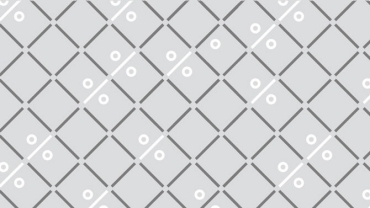
VAT and other indirect taxes
Right to deduct
Expenses related to electricity used on electric or hybrid vehicles will be considered deductible for VAT purposes.
Irrecoverable and bad debts
The proposal foresees that unpaid debts aged more than 12 months since payment due date (currently 24 months) shall be considered as bad debts. Evidence of impairment and of collection efforts is required.
Requests for the recovery of VAT will have to be analysed by the Portuguese Tax Authorities within 4 months (currently 8 months). Lack of decision implies the denial of the request, except for invoices with an amount under EUR 150,000 (VAT included).
The identification of the invoice relating to each bad debt, as well as of the acquirer, the invoice amount and the VAT assessed, the collection efforts made by the creditor and the (partial or total) failure of such efforts, as well as any other relevant documentation which serves as proof of the transactions, will have to be duly documented and certified, as follows:
a) by an independent chartered accountant or certified accountant, in case the VAT adjustment does not exceed EUR 10,000 per VAT return;
b) by a chartered accountant in the remainder cases.
The certification by an independent chartered accountant or certified accountant is required for each relevant document and period to which the VAT adjustment concerns and up to the submission of the request, otherwise the request is not considered as duly submitted.
For adjustments which do not require requests for VAT recovery (irrecoverable debts), certification is required up to the term of deadline for the submission of the VAT return, or up to its submission if made after the legal deadline.
Certification that the legal requirements for the VAT deduction are met in case of irrecoverable debts can now also be made by an independent certified accountant.
Reduced VAT rate
Item 2.10 of List I attached to the VAT Code is amended, in order to clarify that the reduced rate is applicable to purchases made by fire brigades held either by public or private entities.
Item 2.28 of List I attached to the VAT Code, related with domestic assistance to children, elderly, drug addicts, sick or disabled people, is also amended to include the provision of tele-assistance services and to clarify that this rate applies when the services are invoiced to the patient (end customer) and also to a public or private entity.
Treated residual waters shall be subject to VAT at the reduced rate, following the insertion in item 2.35 of List I attached to the VAT Code.
Bullfights are excluded from item 2.32 of List I attached to the VAT Code. On the other hand, this item now include tickets to zoos, botanical gardens and aquarium.
Item 2.34 Is added to List I attached to the VAT Code. This includes services related with tours, with or without a guide, to national, public or municipal interest buildings, and museums that comply with the Portuguese Museum Legal Framework. There will be an exclusion in case of profit making that are not exempt under no. 13 of article 9 of the VAR Code, which shall be subject to the reduced VAT rate.
Beneficiaries of partial or full refund of amounts equivalent to VAT
The National Institute for the Conservation of Nature and Forests (“Instituto Nacional da Conservação da Natureza e da Florestas. I.P”) as well as non-profitable entities part of the national science and technology network, shall become beneficiaries of partial or full refunds of the VAT incurred in the acquisition of certain goods or services.
Legislative authorisations
Services related with food and beverages
For the 4th consecutive year, the Government is granted authorisation to amend item 3.1 of List II attached to the VAT Code. The purpose of this amendment is to apply it to other services related with beverages previously excluded. The amendments foreseen shall consider the conclusions of the inter-ministerial group appointed with that purpose.
Devices for disabled people
The Government is granted authorisation to amend items 2.6, 2.8, 2.9 and 2.30 of List I attached to the VAT Code, concerning goods and services subject to the reduced rate.
The purpose and object of the amendments to introduce to the VAT Code under the legislative authorisation granted are as follows:
a) Widening of the scope of item 2.9 of List I attached to the VAT Code, by reviewing the list approved by the Government, in order to include products, devices and support objects to be included in the list approved by the National Institute for the Rehabilitation, I.P. (“Instituto Nacional para a Reabilitação, I. P.”), which use is exclusively for permanently or temporary disabled people;
b) Adjust items 2.6, 2.8 and 2.30 to the new wording of item 2.9.
VAT on electricity
The Government is granted authorisation to create electricity consumption brackets based on the power structured hired and existing in the market.
The purpose and object of the legislative authorisation granted are as follows:
a) Amend List I and II attached to the VAT Code in order to create consumption brackets, allowing taxation at the reduced or intermediate rates of supplies of electricity related with a low consumption power hired;
b) Narrow the scope of the rates mentioned previously in order to reduce costs associated with energy consumption, protecting final consumption and minimising adverse environmental impacts derived from excessive electricity consumptions.
This measure requires previous analysis by the VAT Committee.
“Debts that are unpaid for 12 months (currently 24 months) since due date are now considered as bad debts.”
Excise Duties (IEC)
Tax on alcohol and alcoholic products (IABA)
A generalized increase by 0.3% is foreseen in the proposal. The lower tax bracket does not suffer any increase.
The applicable rates shall be the following, depending on the added sugar or sweeteners:
- EUR 6.02/hl for drinks with a sugar content between 25 and 50 g/l;
- EUR 8.02/hl for drinks with a sugar content between 50 and 80 g/l; and
- For the higher tax bracket EUR 20,06/hl for drinks with a sugar content of 80 g/l or more.
The same increase by 0.3% is also foreseen for concentrates.
Tax on oil and energy products (ISP)
No significant changes are foreseen. A remark only for the increase foreseen on the maximum and minimum tax limits applicable in the Azores.
In 2020, the additional excise duty on oil and energy products shall remain applicable. Currently, this additional applies as follows: EUR 0.007/l for gasoline and EUR 0.0035/l for both diesel and coloured or marked diesel.
There is an increase of the additional excise duty on products classified under codes NC 2701 (coal, patent fuel, etc), 2702 (lignite) and 2704 (coke), when used in the production of electricity, electricity and heat (cogeneration), or city gas. It is foreseen the taxation at a rate corresponding to 50% of the tax on oil and energy products, as well as with a rate corresponding to 50% of the additional excise duty on CO2 emissions.
The proposal also foresees an increase of taxation of products classified under codes NC 2710 19 61 to 2710 19 69 (fuel oils in general) and 2711 (petroleum gas and other gaseous hydrocarbon), when used in the production of electricity (autonomous regions excluded) and in the production of electricity and heat (cogeneration) or of city gas.
For fuel oils there a proposal to apply a rate corresponding to 25% of the ISP rate and a rate corresponding to 25% of the additional excise duty in CO2 emissions. In case of petroleum gas the rate is 10%. These products are not subject to the additional excise duty on CO2 emissions in case they are used in premises covered by the European Trade of Emission Licences.
Tax on tobacco products (IST)
It is foreseen an increase by 3% on the specific component in heated tobacco.
The proposal also foresees an increase to the ad valorem component, of about 5%, on traditional cigarettes, as well as a reduction on the ad valorem component by 1 percentage point.
The tax on smoking and chewing tobacco shall not suffer any amendments.
The excise rate levied on the nicotine liquid for vaping devices shall be increase by 3%.
Tax on vehicles (ISV)
A general increase on the engine capacity component of about 0.3% was introduced.
As a result of the repeal of the transitional regime applicable in 2019, which foreseen a reduction in percentage of the CO2 emissions measured under the Worldwide Harmonised Light Vehicle Test Procedure (WLTP), new tables for the environmental component, for the vehicles for which the measure is done under the WLTP have been created.
Passenger cars and combined passenger/goods vehicles intended to be rented with driver included – cabdrivers, letters “A” and “T” – equipped with engines powered exclusively for the use of liquefied petroleum gas, no longer benefit from an exemption from ISV.
“A general increase of 0.3% of the tax on vehicles was introduced on the engine capacity component.”
Annual circulation tax (IUC)
A general increase of about 0.3% is foreseen.
As a result of the repeal of the transitional regime applicable in 2019, which foreseen a reduction in percentage of the CO2 emissions measured under the Worldwide Harmonised Light Vehicle Test Procedure (WLTP), the applicable tables shall be amended.
Passenger cars equipped with engines powered by liquefied petroleum gas (GPL), shall no longer benefit from the intermediate tax rate. In order to allocate the respective revenue to municipalities, entities engaged in long term rental or operational leasing of vehicles are obliged to provide to the Tax Authorities data relating to the tax identification of the lessees. Regulation shall be published by decree.
The additional circulation tax applicable to diesel vehicles (Categories A and B) shall apply in 2020.
“Light passenger vehicles moved exclusively by GPL are no longer covered by the VAT intermediate rate.”
Contact us

Tax Lead Partner | Entrepreneurial & Private Business Leader | Member of the Executive Committee, PwC Portugal
Tel: Tel: +351 225 433 101


Marketing & Business Development, Senior Manager, PwC Portugal
Tel: +351 213 599 651

